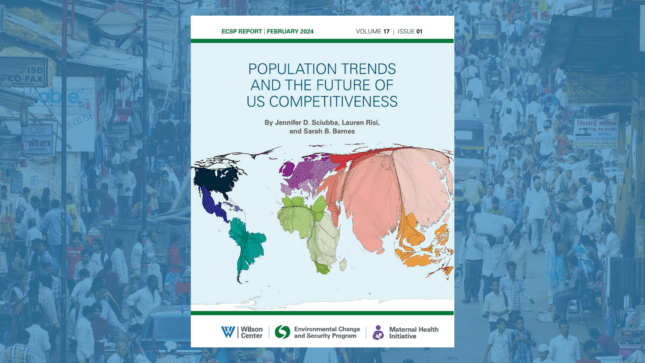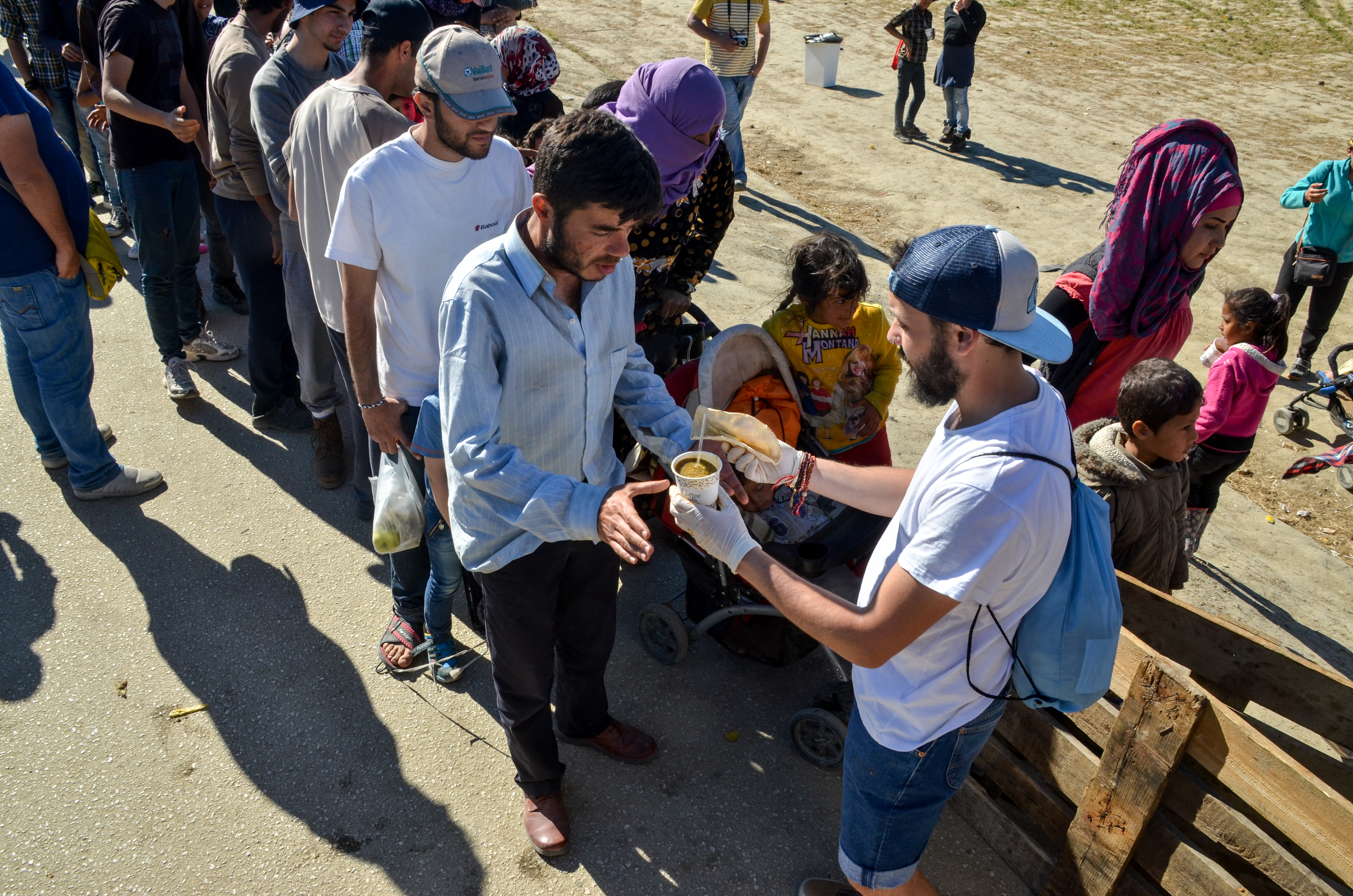-
ECSP Weekly Watch | July 22 – 26
›
A window into what we are reading at the Wilson Center’s Environmental Change and Security Program
Worsening Health Conditions in War-Torn Gaza (BBC)
Water infrastructure in Gaza was already weak before the beginning of the war in 2023, but intensified conflict and siege of critical infrastructure the damage wreaked by Israel’s military forces on critical infrastructure (including water, energy, and food), has left 70% of the people in Gaza exposed to salinated and contaminated water. Traces of polio have been found in wastewater flowing both between displacement camp tents and in inhabited areas, and experts suggest that this water might be circulating.
-
ECSP Weekly Watch | July 8 – 12
›
A window into what we are reading at the Wilson Center’s Environmental Change and Security Program
Climate Security and Canada’s Promises to NATO (Global News)
As a founding member of the North Atlantic Treaty Organization (NATO), Canada has been influential in the integration of climate change policy with the alliance’s mission. It supported the development of NATO’s Climate Change and Security Action Plan aligning with the alliance’s core tasks of deterrence and defense, crisis prevention and management, and cooperative security. Following the Canadian proposal 2021, Global Affairs Canada and the Department of National Defense jointly lead NATO’s Climate Change and Security Centre of Excellence (CCASCOE) to research and identify best practices to address climate change and security-related challenges.
-
REPORT LAUNCH | Population Trends and the Future of US Competitiveness
›From the Wilson Center // February 5, 2024 // By Jennifer Dabbs Sciubba, Lauren Herzer Risi & Sarah B. Barnes
This article is adapted from “Population Trends and the Future of US Competitiveness”
Demographic issues intersect with a number of policy priorities on the congressional agenda, including the economy, immigration, health care and foreign policy, but how population trends influence policy outcomes is often overlooked or misunderstood. In a new report, we explore how population dynamics have changed dramatically over the last few decades, and what these changes mean for the economic and security interests of the United States.
-
The Arc | Dr. Yvonne Su on Climate Migration, Equity, and Policy
›
In today’s episode of The Arc, ECSP’s Claire Doyle and Angus Soderberg interview Dr. Yvonne Su, an Assistant Professor in the Department of Equity Studies at York University in Toronto. Dr. Su challenges oversimplified portrayals of displacement by drawing out how socioeconomic status, identity, and timeframes shape experiences of migration. She also stresses the importance of involving marginalized communities in policy consultations and draws attention to local grassroots organizations as pivotal players in addressing the challenges of climate migration.
-
ECSP Weekly Watch | October 9 – 13
›
A window into what we are reading at the Wilson Center’s Environmental Change and Security Program
Organizing Regional Action on Climate Change, Health, and Environment
As the 2030 deadline for the Sustainable Development Goals looms, the World Health Organization has proposed a new regional framework that aims to build climate-resilient and sustainable health systems, improve the health sector’s access to climate funding, and build an evidence base for policymaking.
-
“You Will Find Your People Here” with Dr. Caroline Wanjiku Kihato and Clare Loveday
› On today’s episode of New Security Broadcast, ECSP Director Lauren Risi and Distinguished Fellow Dr. Blair Ruble talk with Clare Loveday and Dr. Caroline Wanjiku Kihato about their collaborative installation, “You Will Find Your People Here,” currently on view at La Biennale di Venezia. Loveday is a Johannesburg-based composer, and Kihato is an urban sociologist who specializes in gender, migration, and governance; they worked in concert with pianist, Mareli Stolp, and Ghanian artist, Awo Tsegah, to bring the installation to life at the Biennale.
On today’s episode of New Security Broadcast, ECSP Director Lauren Risi and Distinguished Fellow Dr. Blair Ruble talk with Clare Loveday and Dr. Caroline Wanjiku Kihato about their collaborative installation, “You Will Find Your People Here,” currently on view at La Biennale di Venezia. Loveday is a Johannesburg-based composer, and Kihato is an urban sociologist who specializes in gender, migration, and governance; they worked in concert with pianist, Mareli Stolp, and Ghanian artist, Awo Tsegah, to bring the installation to life at the Biennale. -
ECSP Weekly Watch | July 17 – 21
›
A window into what we are reading at the Wilson Center’s Environmental Change and Security Program
Extreme Heat’s Toll on Pregnancy and Reproductive Health
Preliminary data collected by the World Meteorological Organization (WMO) shows that the first week of July 2023 was the hottest week on record. Recent global heatwaves also prompted a public health alert from the WMO concerning rising health risks.
-
ECSP Weekly Watch | July 10 – 14
›
A window into what we are reading at the Wilson Center’s Environmental Change and Security Program
Rough Waters: Sri Lanka’s Fishermen Face Climate Challenges and Economic Woes
Close to 2.4 million Sri Lankans are employed in that nation’s fisheries, and the bounty of its seas and freshwater bodies make up close to half of the country’s animal-based protein. But now the livelihood that has sustained these workers for generations faces growing constraints.
Showing posts from category poverty.





 On today’s episode of New Security Broadcast, ECSP Director Lauren Risi and Distinguished Fellow Dr. Blair Ruble talk with Clare Loveday and Dr. Caroline Wanjiku Kihato about their collaborative installation, “
On today’s episode of New Security Broadcast, ECSP Director Lauren Risi and Distinguished Fellow Dr. Blair Ruble talk with Clare Loveday and Dr. Caroline Wanjiku Kihato about their collaborative installation, “

